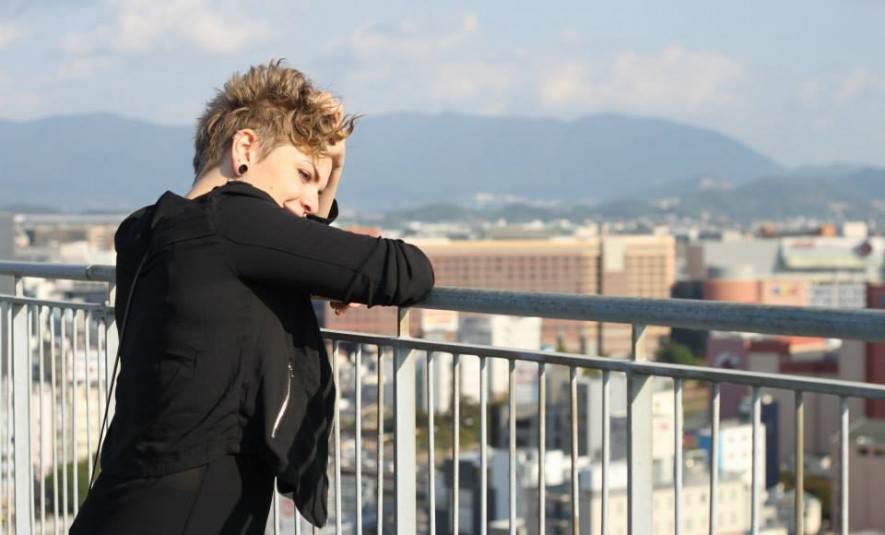So far, I’ve been hanging out with people 10 years older than me, but seeing as most Japanese mature quite late mentally, and me having matured quite early on in life (whilst still preserving my inner child <3), it’s been both fun and exciting! Still, I do sometimes feel that they are at a completely different stage in their life compared to me, which sometimes make me realize that there is an age different, and that I’m really the child of the group. So, lately I’ve been trying to get in contact with more people my own age, which isn’t always successful, seeing as the younger generation of Japanese seem to become more and more spoiled, leaving very few independent and bright minds. However, a few weeks ago I met a girl 3 years older than me, who possessed something I highly value in a person; guts!
Unlike many other Japanese girls she has an edge and personality very similar to mine. Oh, and she listens to rock!!
Yup, I had finally found someone to accompany to a rock bar, something I had wanted to experience ever since I landed in Fukuoka app. 2 months ago. Rcokbars do exist in Denmark, but many have closen down due to economy, and other’s aren’t really rock bars, but just center their music collection around rock. This time, I wanted o experience a 100% dedicated rock bar, so last weekend, we ventured out into the streets of Tenjin – to ROCK!
And what we found was beautiful.
Rockbar &GLAM
Shin-Tenjin Biru 1st Floor
1-23-4 Imaizumi, Chuou-ku, Fukuoka City
TEL 092-771-0911
Webpage: http://www.rockbar-glam.com/
Located about 1 minutes walk from Tenjin St., the rockbar &GLAM presents a 60’s, 70’s and 80’s rock-atmosphere, perfected by the skinny, longhaired bartender, who despite being Japanese looks very western in his Nirvana T-shirt. As you enter the small and private bar, you are immediately struck by the large collection of CDs and LPs behind the bar, stretching from one end to the other and reaching up below the sealing. The walls are decorated with famous rock icons, band merchandize and logos, and the bar counter is stuffed with alcohol bottles, some more special than others, like The Rolling Stone’s whiskey. In the far end of the bar a flat-screen TV is playing famous concerts non-stop, and with a small request your favorite band will appear at your favorite concert – which of course meant that both Led Zeppelin and Black Sabbath had a go when I visited.
Despite being a rockbar, the sheer size of the bar makes it impossible to have more than 7-8 people in there, which makes the atmosphere very private and neat. This however, is exactly why it’s a great rockbar. Here, people can come to talk about rock while releasing the tension from a hard days work. The bartender, despite being somewhat of an odd ball, is more than willing to give a good conversation, and his knowledge of music only makes the experience that much better.
I think I might almost have experienced my first culture shock walking into that bar. So far, the Japanese I’ve met have had next to no knowledge about western music, except Britney Spears and Lady Gaga, but all of a sudden I was with kindred spirits. It was like I was back in Denmark in a bar with my friends, listening to Black Sabbath while talking about how awesome Ozzy‘s voice is, and how sad the death of Dio was! I’ve never felt so confused as when I stepped out of that bar and back into the streets of Japan (of course the numerous glasses of whiskey might have played their part).
I can highly recommend stopping by &GLAM for a quick drink and a couple of songs if your in Fukuoka, and know that you’ll have a hard time leaving again ❤
– Miriam


